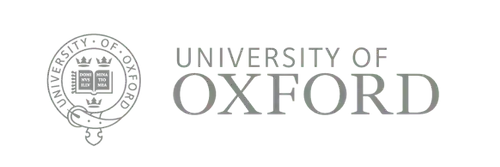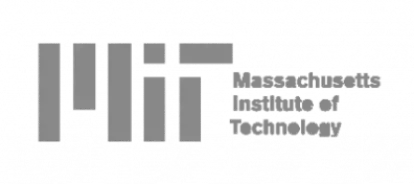I have taught a wide range of physics and astronomy courses from the Freshman to the graduate level. I regularly teach courses on thermodynamics, vibrations and waves, optics, electricity & magnetism, modern physics, classical & analytical mechanics, statistical mechanics, and quantum mechanics, in addition to a selected topics course on general relativity, particle physics and cosmology. I have also taught general astronomy courses and an introduction to astrophysics course for physics majors. At the graduate level, I have taught radiative processes, galaxies and cosmology courses. I have experience operating small telescopes, with a suite of research-grade equipment such as spectrographs, filters, and CCD cameras. Over the years, I have supervised physics senior projects with topics ranging from my research interests to quantum computing. Most recent projects were designing a magnetohydrodynamic drive, econophysics, ultra-high energy cosmic rays, design of a vertical-axis wind turbine, the physics of skiing, Alcubierre warpdrive, the physics of a bouncing ball, and designing hands-on demonstrations for modules in high school physics. I have a video lesson as part of the MIT BLOSSOMS project to describe gravity assists to high school students. You can find the video and relevant material here: [https://blossoms.mit.edu/videos/lessons/gravity_assist_or_stealing_planets_angular_momentum_and_getting_away_it](https://blossoms.mit.edu/videos/lessons/gravity_assist_or_stealing_planets_angular_momentum_and_getting_away_it). The lesson is intended to be a teaching duet with the classroom teacher. I wrote every single word in the documentation related to the video, as well as my script. My field of research is observational astrophysics (supermassive black holes and active galactic nuclei: using multi-wavelength spectroscopy, modeling, and machine learning to study accretion physics, feedback, and the co-evolution with the host galaxy). I have published research papers in the top journals in the field of astrophysics: the Astrophysical Journal, the Astronomical Journal, and Astronomy & Astrophysics. I have also refereed for the above-mentioned journals and for the Monthly Notices of the Royal Astronomical Society. I have also served on NASA proposal review panels. Most recently, I have reviewed proposals for the NASA Postdoctoral Program (NPP). I have a certificate from Teaching Science & Technology, Inc. (TSTI; [www.tsti.net](http://www.tsti.net/)) on “Applied Smallsat/Cubesat Engineering Development” in which I gained working knowledge in space mission analysis and design, end-to-end mission architecture, applied space systems engineering, and applied space program management. I have just finished supervising an M. S. project on the design of a cubesat mission to study the dark ages of the Universe from the far side of the Moon. We are in the process of preparing a manuscript for submission to a peer-reviewed journal.
Bassem Sabra
Professor of Astrophysics providing clients in industry with science-based solutions. Well-rounded physicist who has technical knowledge in virtually all fields of physics and an understanding of engineering constraints and possibilities.
Research Expertise
About
Publications
The arXiv preprint server hits 1 million articles
Nature / Dec 30, 2014
Van Noorden, R. (2014). The arXiv preprint server hits 1 million articles. Nature. https://doi.org/10.1038/nature.2014.16643
Study of LINER sources with broad Hαemission. X-ray properties and comparison to luminous AGN and X-ray binaries
Astronomy & Astrophysics / May 27, 2011
Younes, G., Porquet, D., Sabra, B., & Reeves, J. N. (2011). Study of LINER sources with broad Hαemission. X-ray properties and comparison to luminous AGN and X-ray binaries. Astronomy & Astrophysics, 530, A149. https://doi.org/10.1051/0004-6361/201116806
Study of LINER sources with broad Hαemission
Astronomy & Astrophysics / Mar 01, 2012
Younes, G., Porquet, D., Sabra, B., Reeves, J. N., & Grosso, N. (2012). Study of LINER sources with broad Hαemission: Spectral energy distribution and multiwavelength correlations. Astronomy & Astrophysics, 539, A104. https://doi.org/10.1051/0004-6361/201118299
PG 1254+047: An Intrinsically X‐Ray Weak, Heavily Absorbed Broad Absorption Line Quasar?
The Astrophysical Journal / Dec 20, 2001
Sabra, B. M., & Hamann, F. (2001). PG 1254+047: An Intrinsically X‐Ray Weak, Heavily Absorbed Broad Absorption Line Quasar? The Astrophysical Journal, 563(2), 555–559. https://doi.org/10.1086/324043
THE BLACK HOLE–DARK MATTER HALO CONNECTION
The Astrophysical Journal / Apr 06, 2015
Sabra, B. M., Saliba, C., Akl, M. A., & Chahine, G. (2015). THE BLACK HOLE–DARK MATTER HALO CONNECTION. The Astrophysical Journal, 803(1), 5. https://doi.org/10.1088/0004-637x/803/1/5
AGN Physics with the Sloan Digital Sky Survey
Publications of the Astronomical Society of the Pacific / Jun 01, 2004
Hall, P. B., & Richards, G. T. (2004). AGN Physics with the Sloan Digital Sky Survey. Publications of the Astronomical Society of the Pacific, 116(820), 593–595. https://doi.org/10.1086/421377
Emission and Absorption in the M87 LINER
The Astrophysical Journal / Feb 10, 2003
Sabra, B. M., Shields, J. C., Ho, L. C., Barth, A. J., & Filippenko, A. V. (2003). Emission and Absorption in the M87 LINER. The Astrophysical Journal, 584(1), 164–175. https://doi.org/10.1086/345664
Emission‐Line Properties of the Optical Filaments of NGC 1275
The Astrophysical Journal / Dec 10, 2000
Sabra, B. M., Shields, J. C., & Filippenko, A. V. (2000). Emission‐Line Properties of the Optical Filaments of NGC 1275. The Astrophysical Journal, 545(1), 157–170. https://doi.org/10.1086/317793
X-ray and multiwavelength view of NGC 4278
Astronomy and Astrophysics / Jul 01, 2010
Younes, G., Porquet, D., Sabra, B., Grosso, N., Reeves, J. N., & Allen, M. G. (2010). X-ray and multiwavelength view of NGC 4278: A LINER-Seyfert connection? Astronomy and Astrophysics, 517, A33. https://doi.org/10.1051/0004-6361/201014371
An XMM-Newton view of the dipping low-mass X-ray binary XTE J1710-281
Astronomy & Astrophysics / Jun 15, 2009
Younes, G., Boirin, L., & Sabra, B. (2009). An XMM-Newton view of the dipping low-mass X-ray binary XTE J1710-281. Astronomy & Astrophysics, 502(3), 905–912. https://doi.org/10.1051/0004-6361/200811314
Hubble Space TelescopeUltraviolet Spectroscopy of 14 Low-Redshift Quasars
The Astronomical Journal / Jan 08, 2007
Ganguly, R., Brotherton, M. S., Arav, N., Heap, S. R., Wisotzki, L., Aldcroft, T. L., Alloin, D., Behar, E., Canalizo, G., Crenshaw, D. M., de Kool, M., Chambers, K., Cecil, G., Chatzichristou, E., Everett, J., Gabel, J., Gaskell, C. M., Galliano, E., Green, R. F., … Vestergaard, M. (2007). Hubble Space TelescopeUltraviolet Spectroscopy of 14 Low-Redshift Quasars. The Astronomical Journal, 133(2), 479–486. https://doi.org/10.1086/510129
The Nature of the Ultraviolet/X‐Ray Absorber in PG 2302+029
The Astrophysical Journal / Jun 10, 2003
Sabra, B. M., Hamann, F., Jannuzi, B. T., George, I. M., & Shields, J. C. (2003). The Nature of the Ultraviolet/X‐Ray Absorber in PG 2302+029. The Astrophysical Journal, 590(1), 66–72. https://doi.org/10.1086/375006
Variability of the soft X-ray excess in IRAS 13224–3809
Astronomy & Astrophysics / Oct 01, 2015
Kammoun, E. S., Papadakis, I. E., & Sabra, B. M. (2015). Variability of the soft X-ray excess in IRAS 13224–3809. Astronomy & Astrophysics, 582, A40. https://doi.org/10.1051/0004-6361/201526811
ON THE NATURE OF THE HOT COMPONENT IN THE SYMBIOTIC, SUPERSOFT X-RAY BINARY AG DRACONIS
The Astronomical Journal / Nov 08, 2012
Sion, E. M., Moreno, J., Godon, P., Sabra, B., & Mikolajewska, J. (2012). ON THE NATURE OF THE HOT COMPONENT IN THE SYMBIOTIC, SUPERSOFT X-RAY BINARY AG DRACONIS. The Astronomical Journal, 144(6), 171. https://doi.org/10.1088/0004-6256/144/6/171
Origin and evolution of the elements: edited by Andrew McWilliam and Michael Rauch
Meteoritics & Planetary Science / Feb 01, 2005
Rayet, M. (2005). Origin and evolution of the elements: edited by Andrew McWilliam and Michael Rauch. Meteoritics & Planetary Science, 40(2), 331–332. https://doi.org/10.1111/j.1945-5100.2005.tb00385.x
FUSE Spectroscopy of the Accreting Hot Components in Symbiotic Variables
The Astronomical Journal / Mar 17, 2017
Sion, E. M., Godon, P., Mikolajewska, J., Sabra, B., & Kolobow, C. (2017). FUSE Spectroscopy of the Accreting Hot Components in Symbiotic Variables. The Astronomical Journal, 153(4), 160. https://doi.org/10.3847/1538-3881/aa62a9
Quasar Elemental Abundances at High Redshifts
The Astrophysical Journal / Jun 01, 2003
Dietrich, M., Hamann, F., Shields, J. C., Constantin, A., Heidt, J., Jager, K., Vestergaard, M., & Wagner, S. J. (2003). Quasar Elemental Abundances at High Redshifts. The Astrophysical Journal, 589(2), 722–732. https://doi.org/10.1086/374662
The black hole-dark matter halo connection
Proceedings of the International Astronomical Union / Jul 01, 2007
Sabra, B. M., Akl, M. A., & Chahine, G. (2007). The black hole-dark matter halo connection. Proceedings of the International Astronomical Union, 3(S245), 257–258. https://doi.org/10.1017/s1743921308017857
Metal Abundances and Ionization in QSO Broad Emission-Line Regions
International Astronomical Union Colloquium / Jan 01, 1997
Hamann, F., Shields, J. C., Cohen, R. D., Junkkarinen, V. T., & Burbidge, E. M. (1997). Metal Abundances and Ionization in QSO Broad Emission-Line Regions. International Astronomical Union Colloquium, 159, 96–103. https://doi.org/10.1017/s0252921100039725
Variability Tests for Intrinsic Absorption Lines in Quasar Spectra
The Astrophysical Journal / Feb 01, 2004
Narayanan, D., Hamann, F., Barlow, T., Burbidge, E. M., Cohen, R. D., Junkkarinen, V., & Lyons, R. (2004). Variability Tests for Intrinsic Absorption Lines in Quasar Spectra. The Astrophysical Journal, 601(2), 715–722. https://doi.org/10.1086/380781
Ultraviolet Emission from the Liner Nucleus of NGC 6500
The Astronomical Journal / Dec 01, 1997
Barth, A. J., Reichert, G. A., Ho, L. C., Shields, J. C., Filippenko, A. V., & Puchnarewicz, E. M. (1997). Ultraviolet Emission from the Liner Nucleus of NGC 6500. The Astronomical Journal, 114, 2313. https://doi.org/10.1086/118650
Incorporating Gravity into the Path Integral of Quantum Mechanics Using the Thermodynamics of Spacetime
Jul 19, 2022
Biehle, G., Ellgen, C., Sabra, B., & Zając, S. (2022). Incorporating Gravity into the Path Integral of Quantum Mechanics Using the Thermodynamics of Spacetime. https://doi.org/10.31219/osf.io/d4rkj
1. Der Triumph der Dritten Welt
Geschichte der Islamischen Welt / Jan 01, 2016
Schulze, R. (2016). 1. Der Triumph der Dritten Welt. In Geschichte der Islamischen Welt (pp. 227–243). Verlag C.H.BECK oHG. https://doi.org/10.17104/9783406688560-227
Termine: Mauerwerk 1/2012
Mauerwerk / Feb 01, 2012
Termine: Mauerwerk 1/2012. (2012). Mauerwerk, 16(1), 50–50. Portico. https://doi.org/10.1002/dama.201290007
Multiple-sequence BM algorithm can be replaced by a succession of single-sequence BM algorithm
Proceedings. International Symposium on Information Theory, 2005. ISIT 2005. / Jan 01, 2005
Sakata, S. (2005). Multiple-sequence BM algorithm can be replaced by a succession of single-sequence BM algorithm. Proceedings. International Symposium on Information Theory, 2005. ISIT 2005. https://doi.org/10.1109/isit.2005.1523689
Survey of pasture species and management, manure management, milk production and reproduction on pasture-based dairy farms in Florida and Georgia
Tropical Grasslands - Forrajes Tropicales / Jan 01, 2013
Du, F., Gay, K. D., Sowerby, M. E., Newman, Y. C., Staples, C. R., Lacy, R. C., & De Vries, A. (2013). Survey of pasture species and management, manure management, milk production and reproduction on pasture-based dairy farms in Florida and Georgia. Tropical Grasslands - Forrajes Tropicales, 1(1), 69. https://doi.org/10.17138/tgft(1)69-70
The Dusty Environment of Quasars: Far-Infrared Properties of Optical Quasars
The Astronomical Journal / Feb 01, 2003
Andreani, P., Cristiani, S., Grazian, A., La Franca, F., & Goldschmidt, P. (2003). The Dusty Environment of Quasars: Far-Infrared Properties of Optical Quasars. The Astronomical Journal, 125(2), 444–458. https://doi.org/10.1086/345960
Brainstorm (BM)
Jan 01, 2003
Brainstorm (BM). (2003). British Psychological Society. https://doi.org/10.53841/bpstest.2003.bm
APS Abstracts Submitted for Presentation at the 2002 APS Annual Meeting
Phytopathology® / Jun 01, 2002
APS Abstracts Submitted for Presentation at the 2002 APS Annual Meeting. (2002). Phytopathology®, 92(6s), S1–S92. https://doi.org/10.1094/phyto.2002.92.6.s1
ABSTRACT: Mapping the Deepest Underground Sources of Drinking Water in Ohio
AAPG Bulletin / Jan 01, 2000
Riley, Ronald A., Ohio Department o. (2000). ABSTRACT: Mapping the Deepest Underground Sources of Drinking Water in Ohio. AAPG Bulletin, 84. https://doi.org/10.1306/a9674058-1738-11d7-8645000102c1865d
High temperature thermoplastics data
Materials & Design / Apr 01, 1985
High temperature thermoplastics data. (1985). Materials & Design, 6(2), 54–55. https://doi.org/10.1016/0261-3069(85)90156-6
Meeting Abstracts, Twenty-sixth Annual Meeting of The Western Neurosurgical Society, Kamuela, Hawaii, September 21 to 26, 1980
Neurosurgery / Aug 01, 1981
Meeting Abstracts, Twenty-sixth Annual Meeting of The Western Neurosurgical Society, Kamuela, Hawaii, September 21 to 26, 1980. (1981). Neurosurgery, 9(2), 201–204. https://doi.org/10.1227/00006123-198108000-00018
Education
Ohio University
Ph. D. , Physics & Astronomy / August, 2000
Experience
Notre Dame University Louaize
Professor / 2004 — Present
Sabra Science Solutions, LLC
Founder and Chief Science & Technology Officer / 2020 — Present
Join Bassem on NotedSource!
Join Now
At NotedSource, we believe that professors, post-docs, scientists and other researchers have deep, untapped knowledge and expertise that can be leveraged to drive innovation within companies. NotedSource is committed to bridging the gap between academia and industry by providing a platform for collaboration with industry and networking with other researchers.
For industry, NotedSource identifies the right academic experts in 24 hours to help organizations build and grow. With a platform of thousands of knowledgeable PhDs, scientists, and industry experts, NotedSource makes connecting and collaborating easy.
For academic researchers such as professors, post-docs, and Ph.D.s, NotedSource provides tools to discover and connect to your colleagues with messaging and news feeds, in addition to the opportunity to be paid for your collaboration with vetted partners.
Expert Institutions





Proudly trusted by





